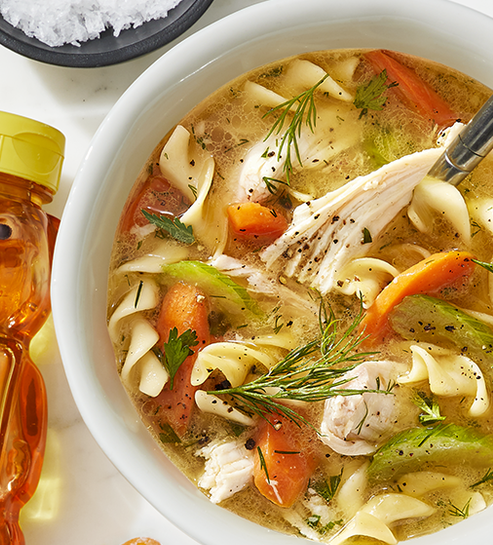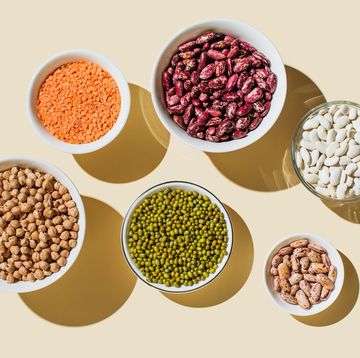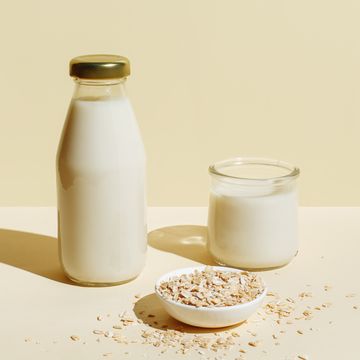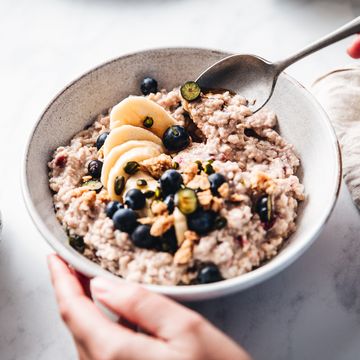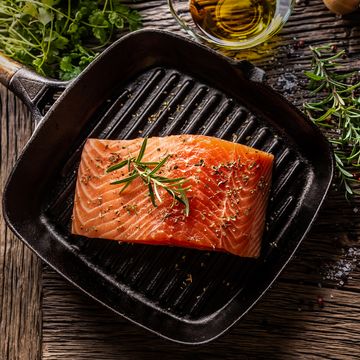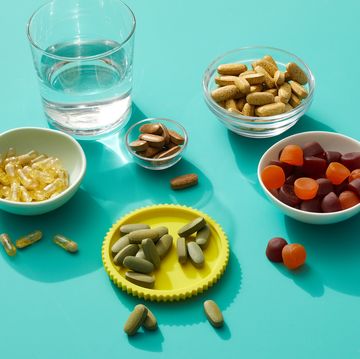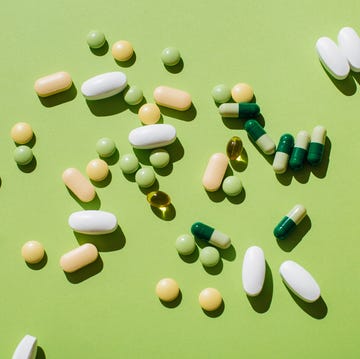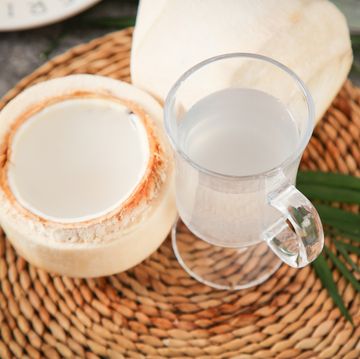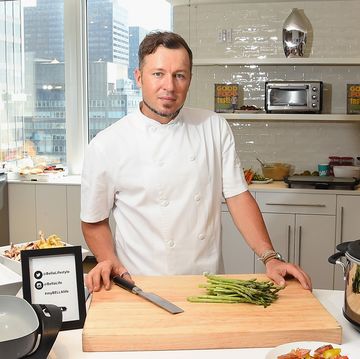When you're coming down with a cold or flu, everyone seems to have their own idea of what will make you feel better — but how do we separate fact from fiction? Do vitamins actually help? What about chicken soup? What should we really be doing to help boost our immune systems, anyway?
As a registered dietitian at the Good Housekeeping Institute Nutrition Lab, I'm here to share more about foods and nutrients that can help you feel your best. And while you have good health on the mind, don't forget to wash your hands, get enough sleep, and get a flu shot ahead of flu season to help you stay your healthiest.
What do I eat to help strengthen my immune system?
Probiotics are considered the “good” bacteria in your gut. These beneficial live microorganisms are the first line of defense for anything you ingest, and they protect all other organs in your body before anything has the chance to circulate through your system. Probiotic-rich foods include yogurt, kefir, kombucha, miso, and sauerkraut. Food should always come first, but if you have chosen to take a probiotic supplement, you'll want to make sure you're taking the right one.
Protein from lean animal sources and plant-based versions (like chickpeas, beans, lentils, and peas) can help build and repair tissues that support a healthy immune system. Plant-based protein sources such as nuts and seeds also provide antioxidants, while meat, shellfish, and legumes supply zinc, the mineral that helps maintain immune cells and heal wounds.
Water is of the utmost importance, whether you are trying to avoid getting sick or already fighting a cold. Downing fruit juices when you're under the weather will only lead to a blood sugar crash, making you feel worse. Since our body’s fluid needs increase when we’re fighting infection, drinking your daily minimum plus a few extra glasses can help flush bacteria through your system. Soups and stews (which provide immune-boosting amino acids and minerals) can feel soothing, while the heat helps open up congestion. Chicken soup also provides more protein plus H2O. There’s a reason they call it Grandma’s penicillin!
What vitamins can boost my immune system?
Vitamin C is what many of us associate with boosting immunity, and for good reason. Vitamin C can help protect your body from infection and even can stimulate the formation of antibodies to fight off disease. The only issue is that your body cannot make Vitamin C, so it must come from the foods you eat on a daily basis. Citrus fruits, such as oranges and grapefruit, are known for their high Vitamin C content. Believe it or not, foods that have even more vitamin C than citrus fruits include red bell peppers and strawberries.
Vitamin A helps your body regulate its immune system and can protect against infection. Some examples of foods rich in Vitamin A includes sweet potatoes, broccoli, red bell peppers, and carrots. Plus, the prebiotic fiber in veggies and fruit supports and feeds the probiotics that live in your GI tract, helping them grow and thrive.
Vitamin E is an antioxidant and helps to neutralize free radicals in the body. Research suggests that Vitamin E can even help protect the body against several infectious diseases. Try incorporating almonds, hazelnuts, and peanut butter into your diet to reap the benefits of Vitamin E. Green vegetables, including spinach and broccoli, also provide some vitamin E.
Please note: While it's highly unlikely you'll get too much in the way of vitamins from food sources, fat-soluble vitamins — vitamin A, D, E, and K — can be harmful in high doses. Research is still ongoing, but science consistently supports the fact that vitamins in supplement form may do more harm than good. Nutrients are always most bioavailable in their natural food form. Plus, the health benefits of these foods generally come from the synergistic relationship and combination of all the nutrients in the food that is difficult to extract into a pill.
For can't-miss news, expert beauty advice, genius home solutions, delicious recipes, and lots more, sign up for our new membership club, GH+.
Stefani (she/her) is a registered dietitian, a NASM-certified personal trainer and the director of the Good Housekeeping Institute Nutrition Lab, where she handles all nutrition-related content, testing and evaluation. She holds a bachelor’s degree in nutritional sciences from Pennsylvania State University and a master’s degree in clinical nutrition from NYU. She is also Good Housekeeping’s on-staff fitness and exercise expert. Stefani is dedicated to providing readers with evidence-based content to encourage informed food choices and healthy living. She is an avid CrossFitter and a passionate home cook who loves spending time with her big fit Greek family.
